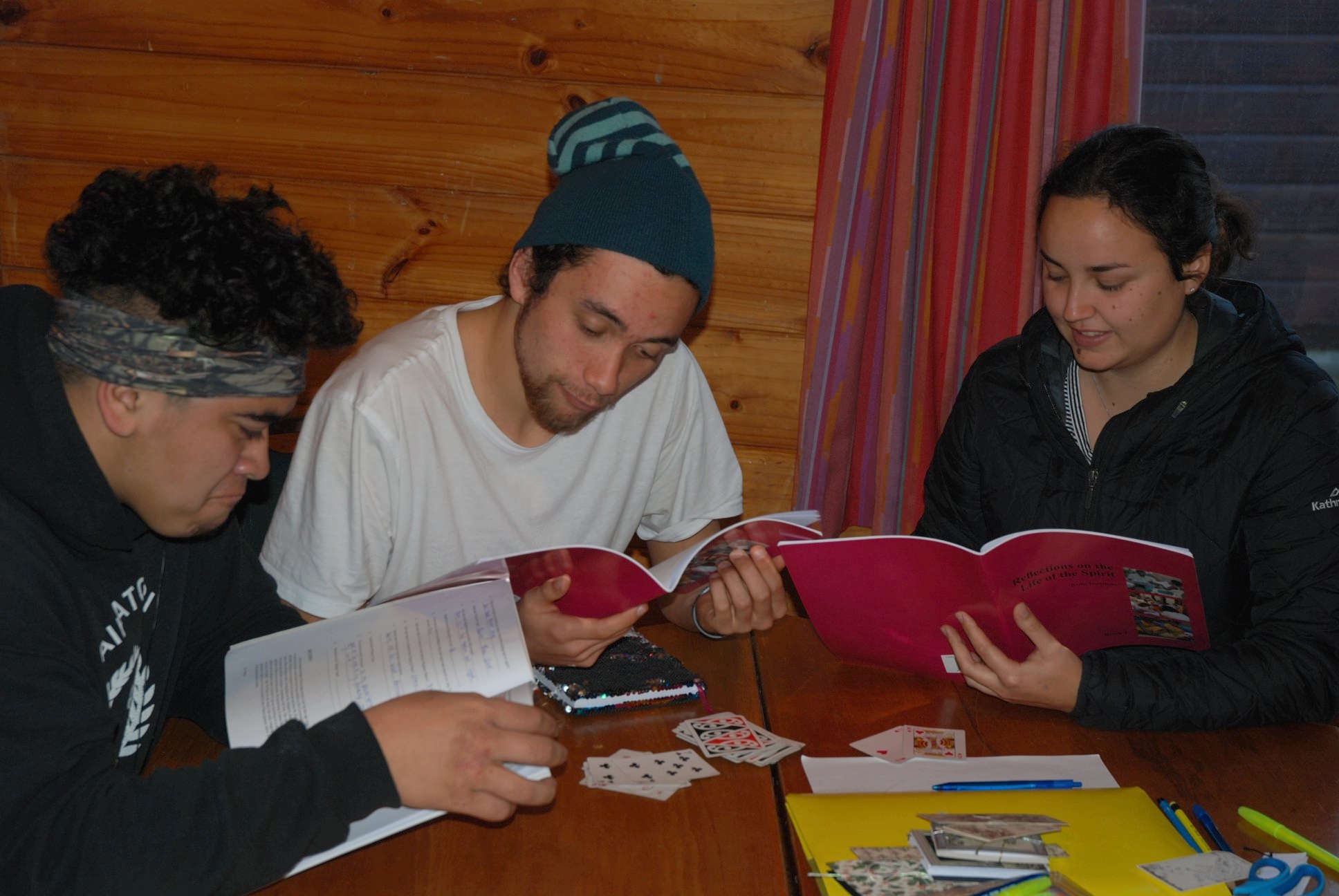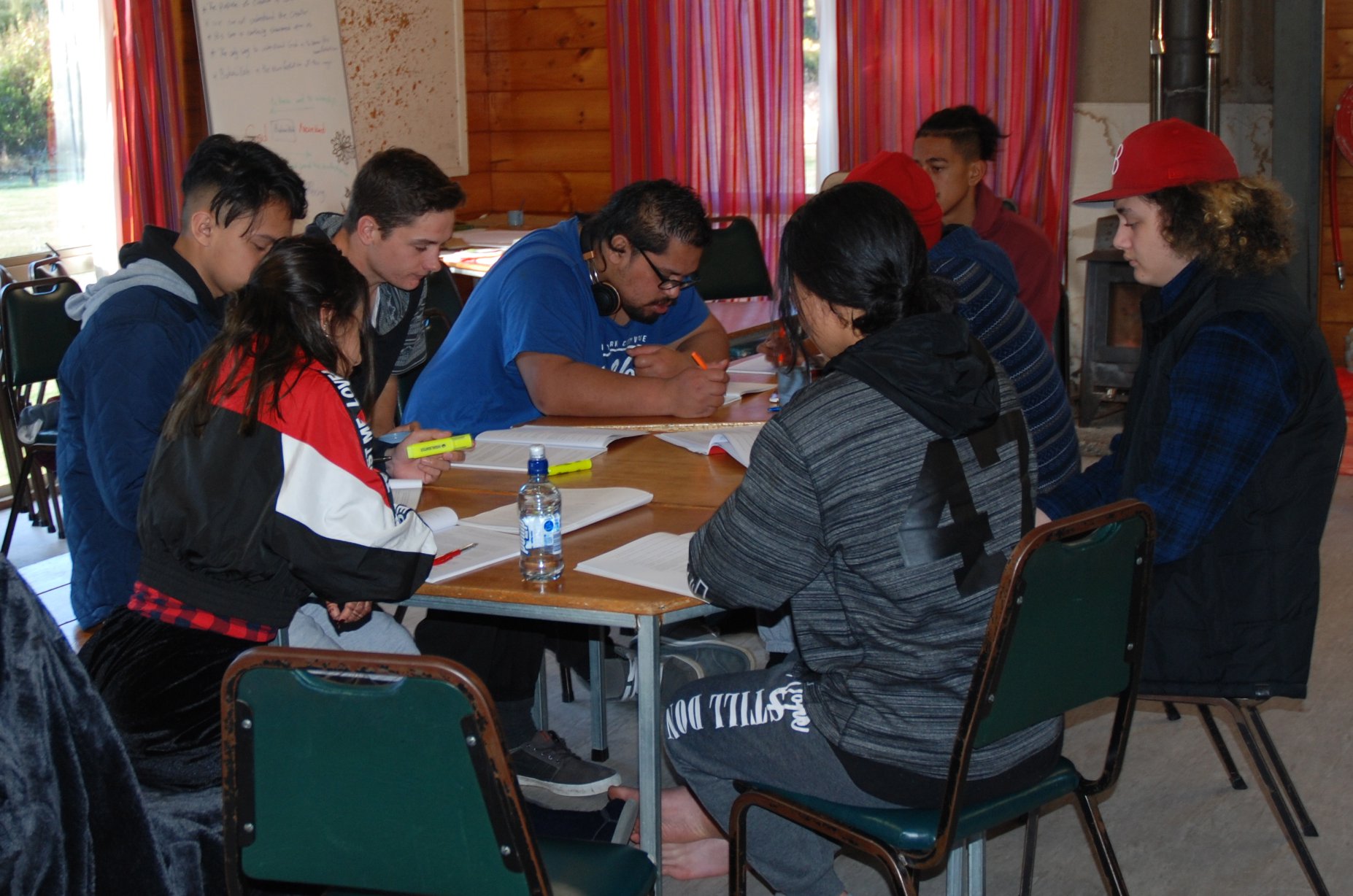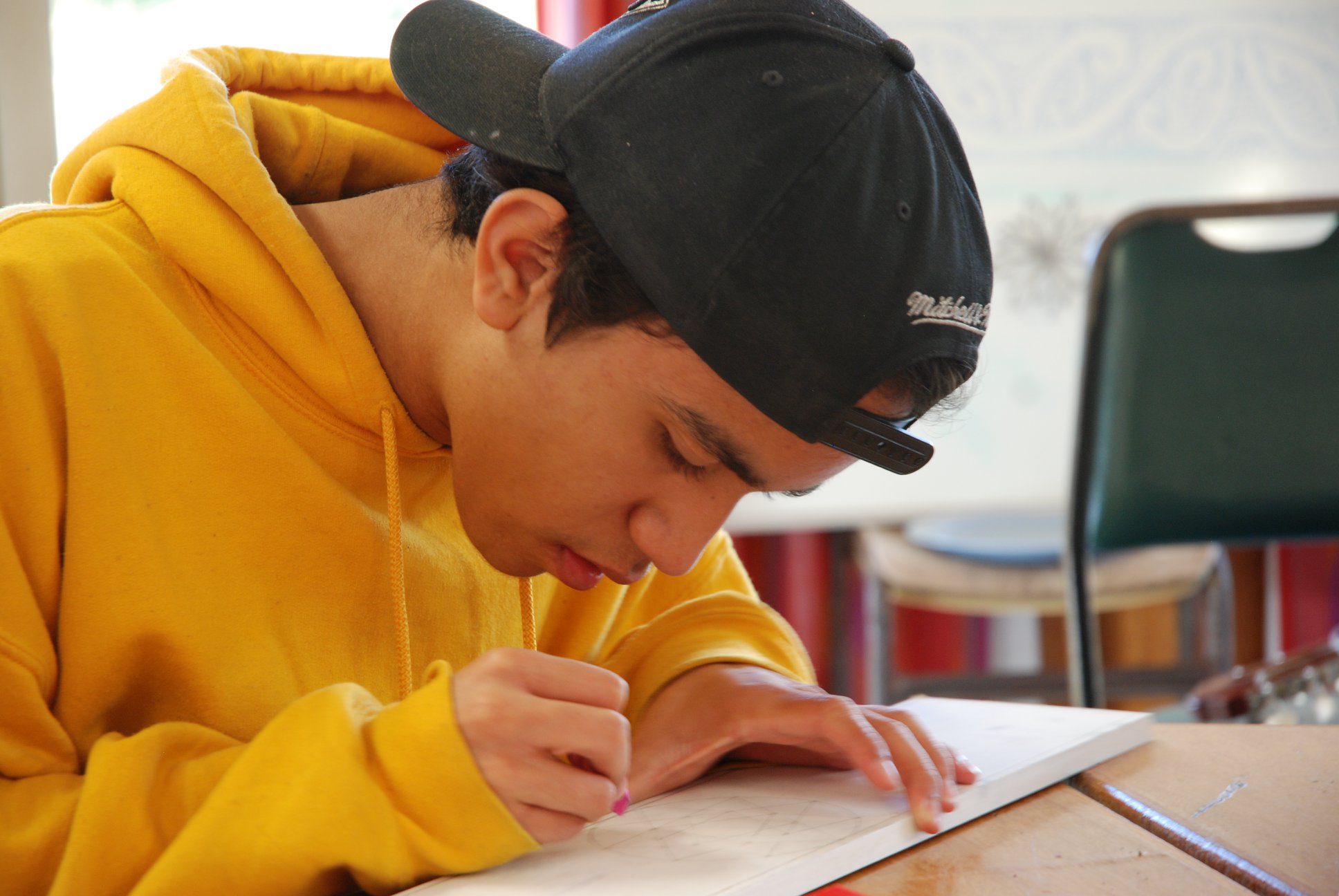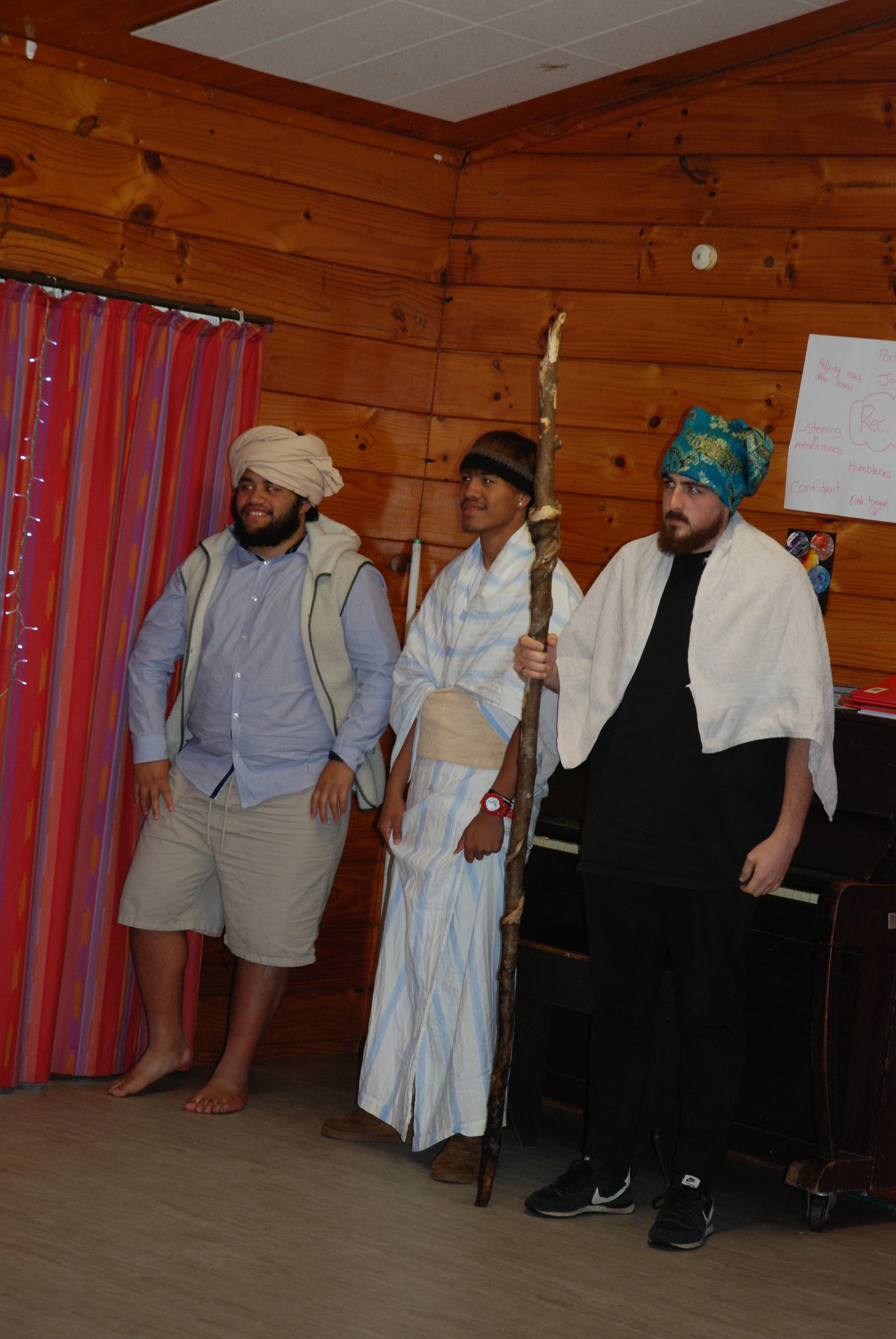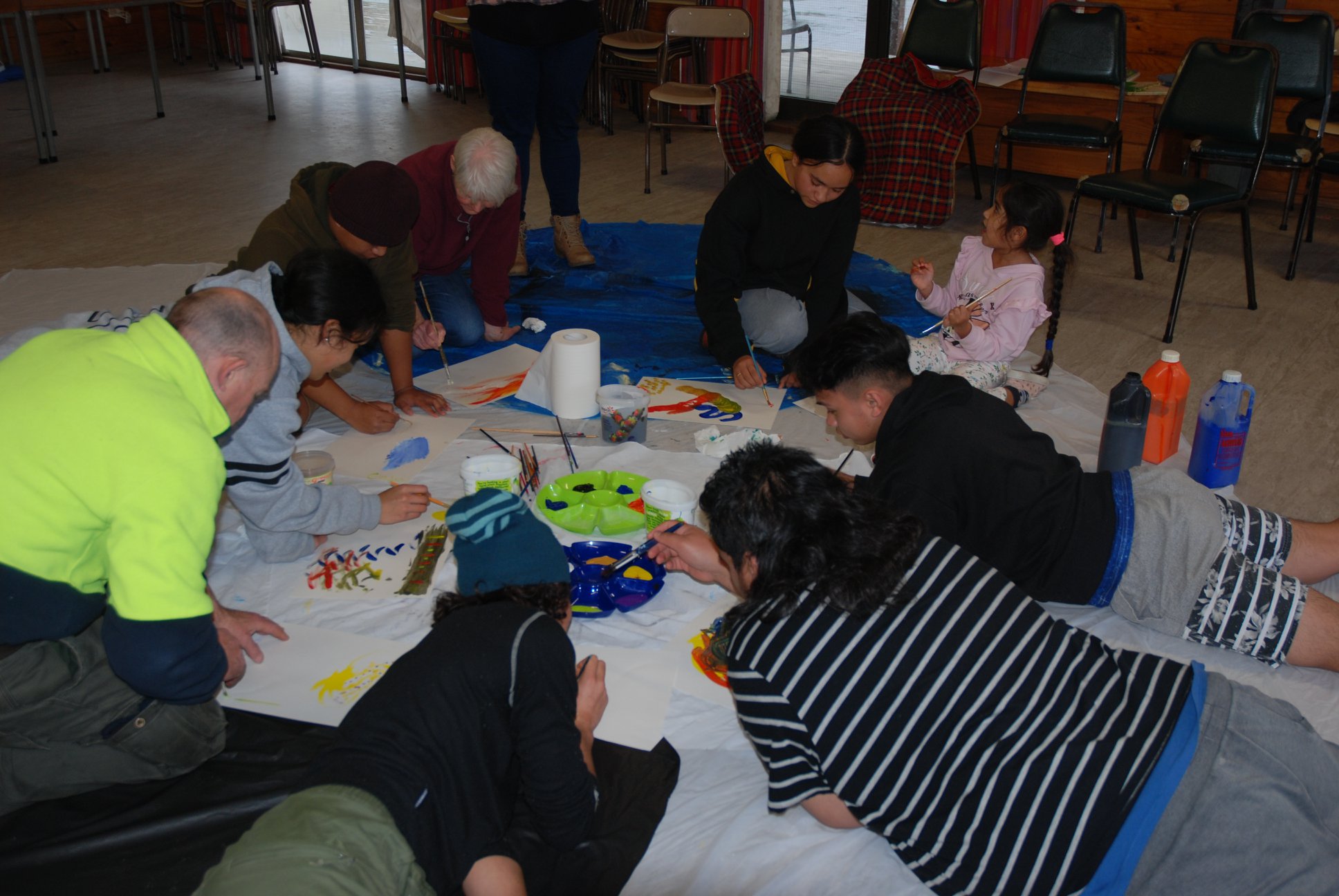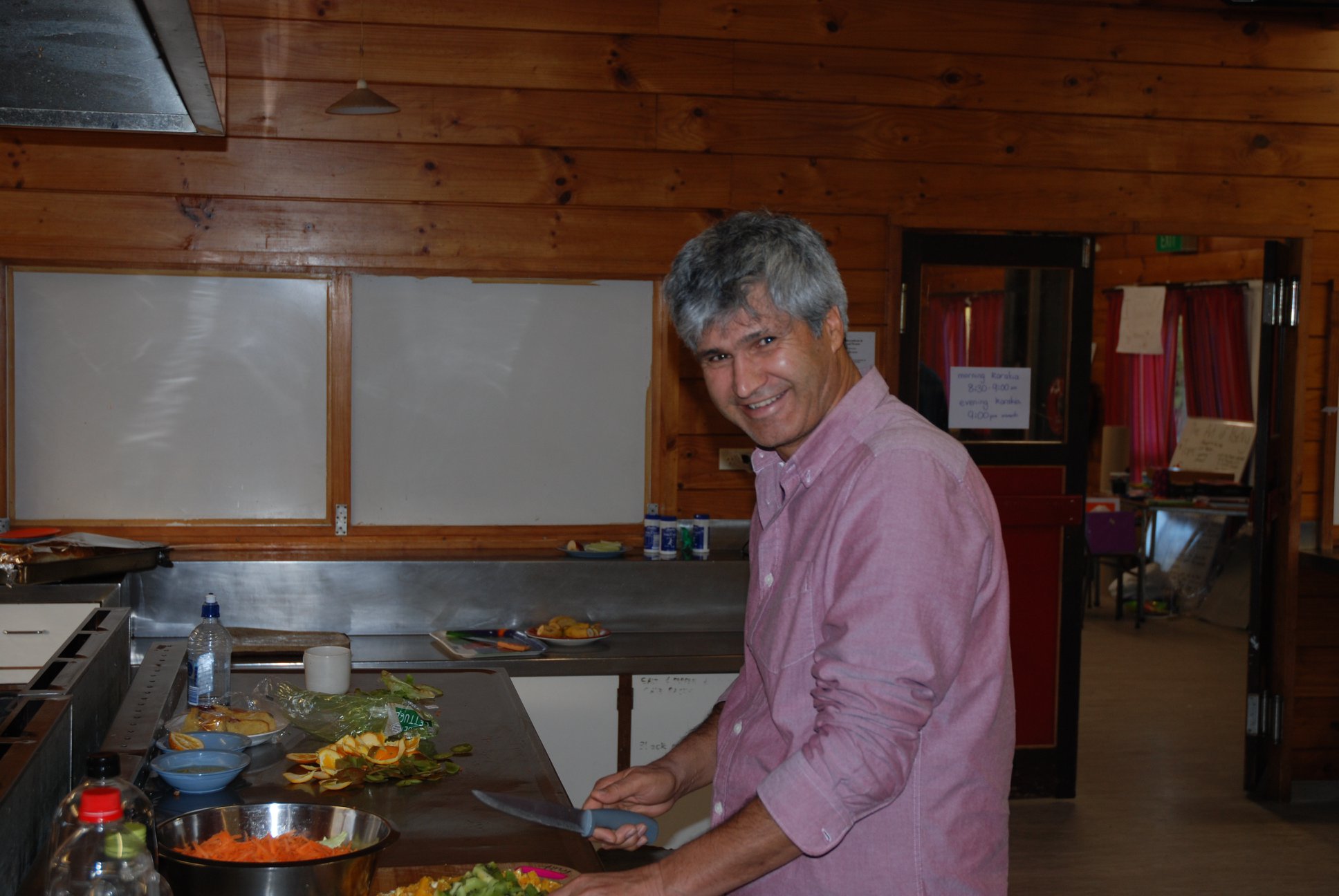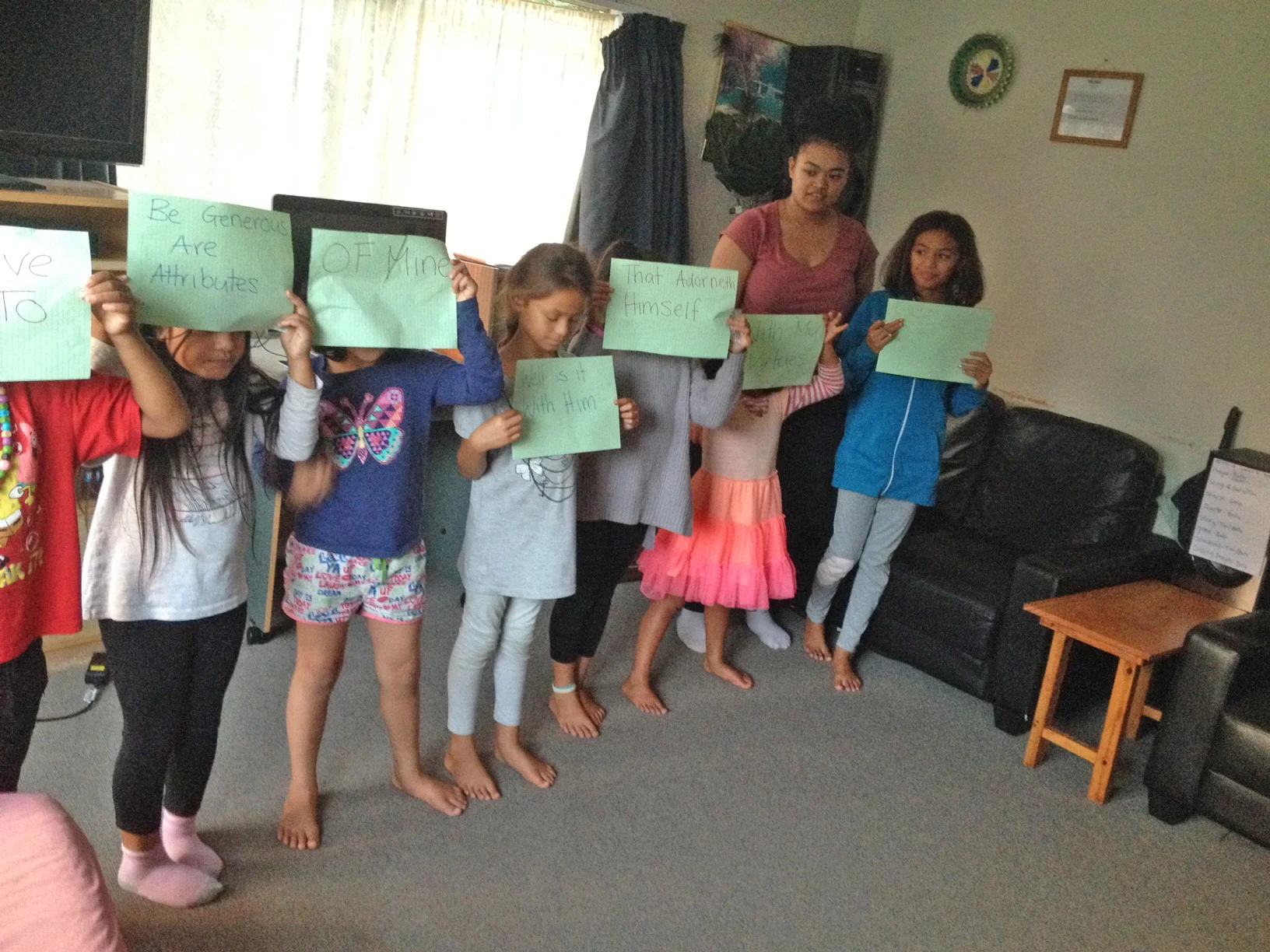Central North Island Ruhi wānanga
From 9 to 18 July, a group of youth participants, tutors and support people attended a Ruhi wānanga at the Okataina Outdoor Education Centre near Rotorua. The purpose was to enable the participants to undergo a process of profound transformation through studying the Word of God intensively over an extended period and to raise their capacity to serve their communities. The elevated environment also assists the participants to envision the future for their own neighbourhoods and builds skills in creating similar spaces within their own communities. This was the eighth such wānanga to be held in the Central North Island region since the beginning of this Five Year Plan.
Individuals came from several focus neighbourhoods and communities within the Central North Island region, including Western Heights/Rotorua, Merivale/Tauranga, Fairfield/Hamilton, Te Awamutu, Taumarunui, Waikato District and Matamata-Piako. We also had individuals from further afield join us in various roles – from Auckland, New Plymouth and Wairoa. The Ruhi books offered at each wānanga vary according to the needs of the participants and the availability of tutors. This cycle, five participants studied Book 4, eight participants studied Book 2, two participants studied Book 1, and three studied three junior youth texts (Learning About Excellence, The Human Temple and Spirit of Faith). Three others joined the Book 1 group to study Spirit of Faith during the last few days.
A Spirit of Love, Fellowship and Unity
Particularly noteworthy was the spirit of love and fellowship, tranquillity and unity. There was a real sense of whanaungatanga – of being one family. Spirits were raised further by the declaration of four souls – three Book 2 participants and one from Book 4. Three declared during the wānanga, and one shortly afterwards (from Tauranga, Te Awamutu and Hamilton). All had attended at least the last two wānanga. It was also wonderful to have a new tutor arise to co-tutor Book 2, particularly as he is a youth and indigenous to his neighbourhood (Fairfield). He began his Ruhi journey about 18 months ago, and has now completed most of the sequence, as well as having served as a short-term pioneer to Rotorua over the summer.
As always, the evening devotions hosted by each study circle uplift the spirits and rarefy the atmosphere. The weaving of concepts from study of writings into the decoration of the devotional spaces was a wonderful addition (the ladder of prayer stretched betwixt earth and heaven, the fountain of living waters). A real highlight was the Unity Feast held by Book 2 following their study of the 19 Day Feast deepening theme. Rotorua Community members were invited to attend, Book 1 organised the devotions, the junior youth text group prepared the refreshments and every member of Book 2 had a role in introducing the purpose of each aspect of the Feast. The administrative portion was very ably hosted by two of the Book 2 participants. During this portion of the Feast, progress reports were given by each of the study circles, the perspectives of the kitchen crew and community were elicited and the spirit of excellence at the wānanga explored. Book 2 followed up by home visiting two individuals in Rotorua (one Bahá’í and one friend of the Faith) to present the deepening themes they had been learning about (including the Eternal Covenant and the life of Bahá’u’lláh). The friend of the Faith was particularly affected by the fact that none of the team who visited her were enrolled Bahá’ís.
Use of the Arts
Another highlight was the coherence and impact of the use of the arts in study circles. Book 4 produced a number of dramatic items, the most affecting of which was based on the story of those prisoners accompanying Bahá’u’lláh in the Síyáh-Chál. Book 2 collaboratively constructed a waka which represented the Ruhi Institute. On the waka was a whare which represented our wānanga, and in the whare were representations of all of the Book 2 participants. The waka sat on an ocean, representing Bahá’u’lláh’s Revelation, and this was surrounded by some of the ‘pearls’ they had gleaned from their study of Book 2. Book 1 created a song from one of the quotes, created nail art ladders of prayer and wove bracelets based on the concepts presented in Spirit of Faith. The group studying the junior youth texts wrote a poem about the wairua of the wānanga (based on the form presented in The Human Temple).
We were lucky to have Mervyn Chivers from Taranaki with us again this cycle as he was able to work seamlessly with both Book 2 and 4 to aid them to enhance their powers of expression in presenting deepening themes and retelling historical episodes from the lives of the Báb and Bahá’u’lláh, and in developing respectful and creative dramatic presentations to enhance understanding of these episodes.
Power of expression was enhanced by practicing telling stories from the lives of the Báb and Bahá’u’lláh
Another aspect of artistic development during the wānanga also took the form of specific art workshops. These included poetry/spoken word (Te Hira and Petera), screen-printing (Rebekah), acrylics (Elise), wax art (Anita), sushi making (Mana, Jessica and Jacob) and kōwhaiwhai panels (Raj). We also had a workshop on the Institution of the Mashriqu’l-Adhkár (Zane). One of the most joyful results was from a music workshop which produced a fusion of Persian chanting and reggae music based on the quote ‘Be not content with showing friendship in words alone. Let your heart burn with loving kindness for all who may cross your path.’ We would be grateful if others would be willing to come and share their artistic skills with us in the future.
Participants learn to roll sushi during an arts workshop
Universal Participation
We are extremely grateful to all those who have contributed to the wānanga by donating or delivering firewood, transporting participants and equipment, grocery shopping or baking, working tirelessly in the kitchen to sustain the efforts of the youth, running an arts workshop, contributing funds or praying for our success.
Since the wānanga, a new devotional meeting has been established by one team of youth, and a second team has become further consolidated and has started a study circle in their neighbourhood. Two junior youth groups are being planned.
Two fundraising efforts have taken place, to help contribute to the next wānanga: a basketball competition on 18 August, and a garage sale earlier the same day in Hamilton.
If you are interested in participating in any of these events, or in sponsoring a participant, please let us know. Also, if you have any surplus produce (e.g. fruit, veges, eggs) that you are happy to donate to the next gathering (to be held during the October school holidays), that would be most appreciated.
One way we would like to develop is by having a small library of suitable books for the youth to read both during personal time during the wānanga, and between wānanga while they are back in their neighbourhood. Many of the participants are actively investigating the Faith, but would like to read more to deepen their understanding. Others are quite isolated and are less able to connect with other youth between times, so this is an avenue for them to continue to nurture their spirits independently. If you have any duplicate copies of books that you think might be suitable, or are willing to purchase one from the Bahá’í Distribution Service for this purpose, please let us know.


